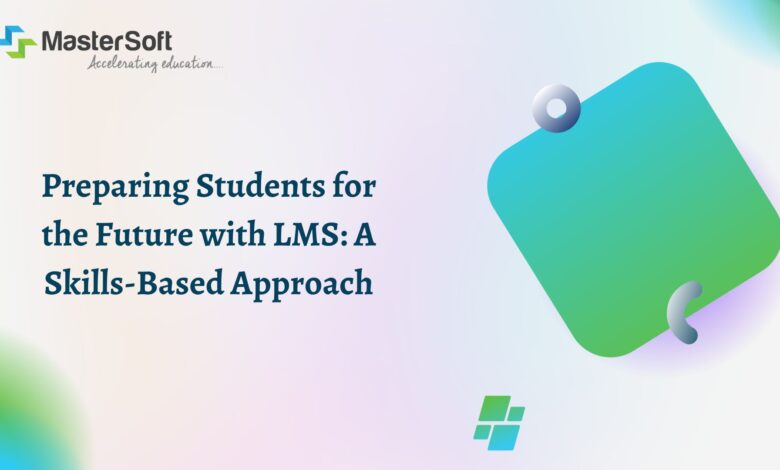Preparing Students for the Future with LMS: A Skills-Based Approach
Preparing Students for the Future with LMS: A Skills-Based Approach

In the fast-paced and ever-evolving world we live in, the traditional education system faces the challenge of preparing students for a future that is marked by rapid technological advancements, globalization, and the need for a diverse skill set. To bridge this gap, Learning Management Systems (LMS) have emerged as a powerful tool in education. This blog explores how an LMS, when leveraged through a skills-based approach, can effectively prepare students for the future.
The Changing Landscape of Education
The landscape of education is constantly changing, driven by technological innovation and global shifts in the workforce. With the advent of automation, artificial intelligence, and remote work, students today need more than just textbook knowledge. They require a diverse set of skills that will make them adaptable and competitive in the job market of the future.
-
Customized Learning Paths
One of the key advantages of using the best LMS software in India for education is the ability to create customized learning paths for each student. Through a skills-based approach, educators can tailor the curriculum to meet the individual needs and learning styles of their students. This personalization not only enhances the learning experience but also ensures that students acquire relevant skills for their future careers.
-
Real-World Skills Development
A skills-based approach focuses on teaching practical, real-world skills that are directly applicable in a variety of industries. LMS platforms allow educators to incorporate interactive simulations, and case studies. Hands-on projects, giving students the opportunity to apply their knowledge in a practical setting. This approach prepares them to tackle real-world challenges with confidence.
-
Collaboration and Communication
In the modern workforce, collaboration and effective communication are essential skills. LMS platforms often include tools for collaborative learning, such as discussion forums and group projects. By working together in virtual teams, students learn to communicate, collaborate, and solve problems, mirroring the dynamics of the future workplace.
-
Continuous Learning and Adaptability
The future job market demands individuals who are adaptable and open to continuous learning. An LMS supports this by offering a flexible learning environment that enables students to access educational resources and materials anytime, anywhere. They can acquire new skills and knowledge even after graduating, ensuring they remain relevant in their careers.
-
Data-Driven Insights
LMS platforms provide valuable data and analytics that help educators track student progress. Identify areas where students may need additional support. This data-driven approach enables early intervention and personalized feedback. Ensuring that students are on the right path to acquiring the skills they need for the future.
-
Soft Skills Emphasis
In addition to technical skills, soft skills such as critical thinking, problem-solving, and emotional intelligence are highly sought after in the job market. An LMS can integrate modules that focus on developing these essential soft skills, enhancing a student’s overall readiness for the future.
- Global Perspective
Globalization has made the world more interconnected than ever before. Through LMS platforms, educators can expose students to a global perspective by incorporating diverse cultural and international content. This prepares students to work in a globalized economy and promotes intercultural competence.
- Accessibility and Inclusivity
Inclusivity is a crucial aspect of preparing students for the future. LMS software can accommodate various learning styles, including visual, auditory, and kinesthetic, making education accessible to a wide range of students. This inclusivity ensures that no one is left behind in the pursuit of valuable skills.
Conclusion
As we prepare students for the future, we must equip them with the skills they need to succeed in a rapidly changing world. A skills-based approach, facilitated by Learning Management Systems, offers a promising solution. By customizing learning paths, emphasizing real-world skills, promoting collaboration, and encouraging continuous learning, students can become adaptable, globally aware, and ready to thrive in the workforce of the future. In a world where the only constant is change, the skills-based approach through LMS paves the way for a brighter, more prepared future for our students



